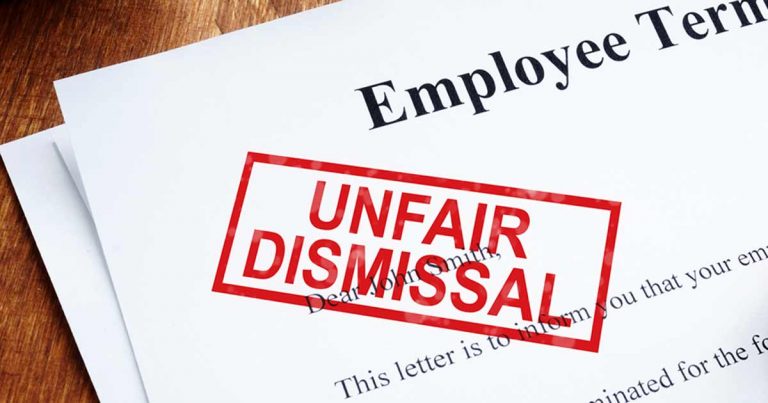Compensation for Arbitrary Dismissals under the UAE’s Labor Law: A Narrowed Scope
Following the enactment of the Federal Decree-Law No. 33 of 2021 on the Regulation of Employment Relationships (the “UAE Labour Law“), which replaced Federal Law No.8 of 1980 (the “Old UAE Labour Law“), the UAE’s employment legal framework has undergone significant transformations, fundamentally impacting the rights and protections of employees. A key area that has experienced notable change is the “arbitrary dismissal” of employment contracts.
The Shift from “Arbitrary Dismissal” to “Illegitimate Termination”
The UAE Labor Law introduced a change in terminology, transitioning from “arbitrary dismissal” as mentioned in Article 123 of the Old UAE Labour Law, to “illegitimate termination” as per Article 47 of the UAE Labour Law.
While this may seem like a mere change in terminology, its implications are considerable. The essence of this change is the specific limitation of the circumstances under which a termination can be classified as “illegitimate,” hence entitling the employee to compensation.
Previously, Article 123 of the Old UAE Labour Law stated, “If the employee has been arbitrarily dismissed, the competent court has the jurisdiction to give judgment against the employer for compensation to the employee. The court shall determine the amount of this compensation, taking into consideration the nature of work sustained by the employee, the period of service, and the dismissal circumstances. Provided that in all cases, the amount of compensation should not exceed the employee’s pay for a period of three months, to be calculated based on the last wage he was obtaining.”
This provision was superseded by Article 47 of the UAE Labour Law, which provides that: “1. The termination of the worker’s service by the employer is unlawful if the termination of the worker’s service is due to filing a serious complaint to the Ministry or filing a lawsuit against the employer, whose validity is proven.
2. The employer shall pay fair compensation to the worker estimated by the competent court if it is proven that the termination is unlawful according to Clause (1) of this Article. The amount of compensation shall be defined by taking into account the work type and the amount of damage caused to the worker and his service term. It is required in all cases that the amount of compensation does not exceed the worker’s wage for a period of (3) three months, calculated according to the last wage he was obtaining.”
The Two Exclusive Pathways for Compensation for Illegitimate Termination
As per Article 47 of the UAE Labour Law, an employee can only claim compensation for an “illegitimate termination” if:
- The termination results directly from the employee filing a complaint with the Ministry of Human Resources and Emiratization (MOHRE); or
- The employee initiates a valid legal lawsuit against their employer.
Accordingly, the principle now is that compensation for an “illegitimate termination” is exclusively granted when an employee’s dismissal precisely fits within the above two narrowly outlined situations.
The UAE Courts’ Stance
The recent precedents emerging from the Abu Dhabi and Dubai courts have reinforced this restrictive interpretation. A close examination of their judgments reveals a consistent pattern: the courts have been reticent to award compensations in cases of termination unless they fall under the scenarios outlined in Article 47 of the UAE Labor Law (Dubai Cassation Labour No.232/455 / 2022 /). This judicial approach not only corroborates the explicit wording of the law but also sets a clear pathway for future judgments.
The Implications for Employees and Employers
This new paradigm undeniably reduces the scope for employees to claim compensation in the event of a perceived illegitimate termination. The employees must be aware that, unless their circumstances fit within the defined scenarios of Article 47, the doors to compensation for illegitimate termination are essentially closed. However, while the avenues for compensation in cases of illegitimate termination may be narrower, the employee’s entitlement to end-of-service gratuities remains sacred and protected by the UAE Labour Law.
Employers, on the other hand, should bear in mind that while these legal changes may offer greater clarity and flexibility in certain termination scenarios, the ethical responsibility towards their employees remains paramount. Upholding fair employment practices and respecting the rights of their workforce should always be a guiding principle.
Continual Evolution of UAE’s Employment Legislation
The recent introduction of Federal Decree-Law No.20 of 2023, which amends certain provisions of the UAE Labour Law, marks a progressive improvement in the UAE’s employment legislative framework.
This amendment, set to come into effect on January 1, 2024, authorizes the Ministry of Human Resources and Emiratization (MOHRE) to rule on straightforward labor claims. This major development aims to expedite the resolution of labor disputes. In particular, the MOHRE can issue final and binding decisions on disputes having a value less than AED 50,000 or when any party involved has breached a previous amicable settlement decision given by the MOHRE, regardless of the claim’s value. Decisions made by the MOHRE carry the force of a writ of execution. Furthermore, parties can challenge the MOHRE’s decisions before the Court of Appeal within 15 days of being notified of the said decision. The Court of Appeal is then obliged to schedule a hearing within 3 working days and deliver a judgment within 15 days of the appeal submission.
This amendment is designed to not only reduce the judicial load but also to offer quicker relief mechanisms for employees, notably those with lower incomes.
Author:
Fidele Kamel
Associate


